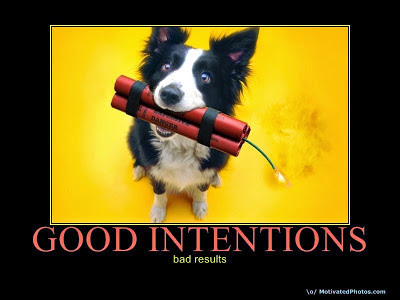Na passada quinta-feira, Camilo Lourenço moderou mais uma conversa do MEL Talks, deste feita com
João Duque. O objectivo era falar sobre a formação de salários em Portugal, sobre como sair da espiral dos baixos salários e como analisar a questão do salário mínimo.
Confesso que estranhei a direcção inicial imposta pelo discurso de João Duque para a conversa, e na qual Camilo Lourenço embarcou: salários e catequese. Sim, tinhamos um académico de economia a proferir julgamentos sobre a enormidade que ganham futebolistas e artistas. Enfim, conversa de taxista. Até que Jorge Marrão entra para impor algum discurso racional e falar da procura e da oferta.
Comecei a ouvir a conversa com uma ideia feita e cheguei ao fim com a mesma ideia.
A produtividade e os salários não sobem porque temos mais gente formada, ou doutorada ou com cursos profissionais. É a velha
estória da caridadezinha (2008).
A produtividade não cresce porque fazemos bem ou melhor as coisas (isso são "peaners"), a produtividade cresce a sério é quando fazemos bem o que deve ser feito. E o que deve ser feito é radicalmente diferente do que estamos a fazer.
Tenho ouvido e lido muita coisa sobre o Plano Costa e Silva e uma das coisas que mais espécie me faz é a distinção entre estratégia e execução. Estou a recordar-me de um projecto onde estive envolvido há anos. Talvez por causa do meu voluntarismo, talvez por causa de má comunicação entre as partes (nem sempre a gestão de topo tem a coragem de assumir o que quer), eu entrei para o projecto decidido a fazer o que gosto: implementar um sistema de gestão da qualidade não para certificar, mas para ganhar dinheiro, para optimizar a rentabilidade da empresa focando-a na execução da estratégia. A empresa, soube-o mais tarde, só queria a certificação, a bandeira e o certificado. Resultado, desenhamos um sistema bonito, intelectualmente brilhante (OK, elogio em boca própria é vitupério), que permitiu que a empresa fosse certificada, mas que nunca gerou a mais valia prevista porque a empresa não tinha a motivação nem o know-how(?) para o usar.
Querer mudar top-down uma economia é cometer o mesmo erro que cometi nesse projecto. Admitamos que se consegue desenhar um programa brilhante (hipótese académica apenas, o mundo é demasiado complexo e volúvel para alguém ser capaz de conceber tal plano) quem é que o vai executar? Acham que
são os mais formados?
Acham que as universidades ensinam a gerir empresas no mundo complexo em que vivemos? Vejam a
SONAE, mal foge do
negócio do preço, perde dinheiro.
No final da conversa João Duque brinda-nos com uma ilustração da ligeireza com que o mundo académico segue a micro-economia. Segundo João Duque o sucesso do calçado nos últimos anos foi baseado no desenvolvimento de marcas... de marcas? Come on! Quantas marcas ganham dinheiro? Quantas marcas ao fim de 5 anos ainda estão vivas? Desenvolver marca é uma forma de sacar dinheiro de projectos europeus, mesmo que bem intencionada, mas que morre quando acaba o financiamento. O que foi desenvolvido e bem foi a marca "Made in Portugal" para que marcas estrangeiras viessem para Portugal aproveitar a sua "uniqueness" da proximidade produção-consumo (rapidez, flexibilidade, qualidade). BTW, mas é outra conversa, esta uniqueness já se foi graças à Turquia, Roménia, Marrocos, Argélia, Tunísia, Bulgária, ...
A única maneira de salários e produtividade darem um salto é mudar de áreas de actividade. Quem segue este blogue pensará: Está a meter a pata na poça...
os macacos não voam!
Sim, os macacos não voam, Hausmann tem razão.
Ou seja, e essa é a minha ideia feita, o salto de produtividade só pode ser conseguido com know-how e capital estrangeiro. A única coisa que há a fazer, algo de muito difícil num país socialista, agarrado à adicção da distribuição sem criação prévia de riqueza, é criar condições para que quem quiser investir cá tenha vantagens em o fazer, sem ter de as negociar com um Galamba qualquer.
Este investimento criaria as condições para o spill out que permitiria que projectos portugueses também subissem a sério na escala de valor.
Reparem neste exemplo irlandês:
Acham que os irlandeses são super? Não, basta terem a legislação e o contexto que atraiu investimento nas indústrias química e farmacêutica.
Até lá teremos esta cultura de sacar, de captar, de sifonar:
Ao qual criar riqueza não lhe assiste. Por isso, a
caminho da Sildávia.

















%2006.21.jpeg)












